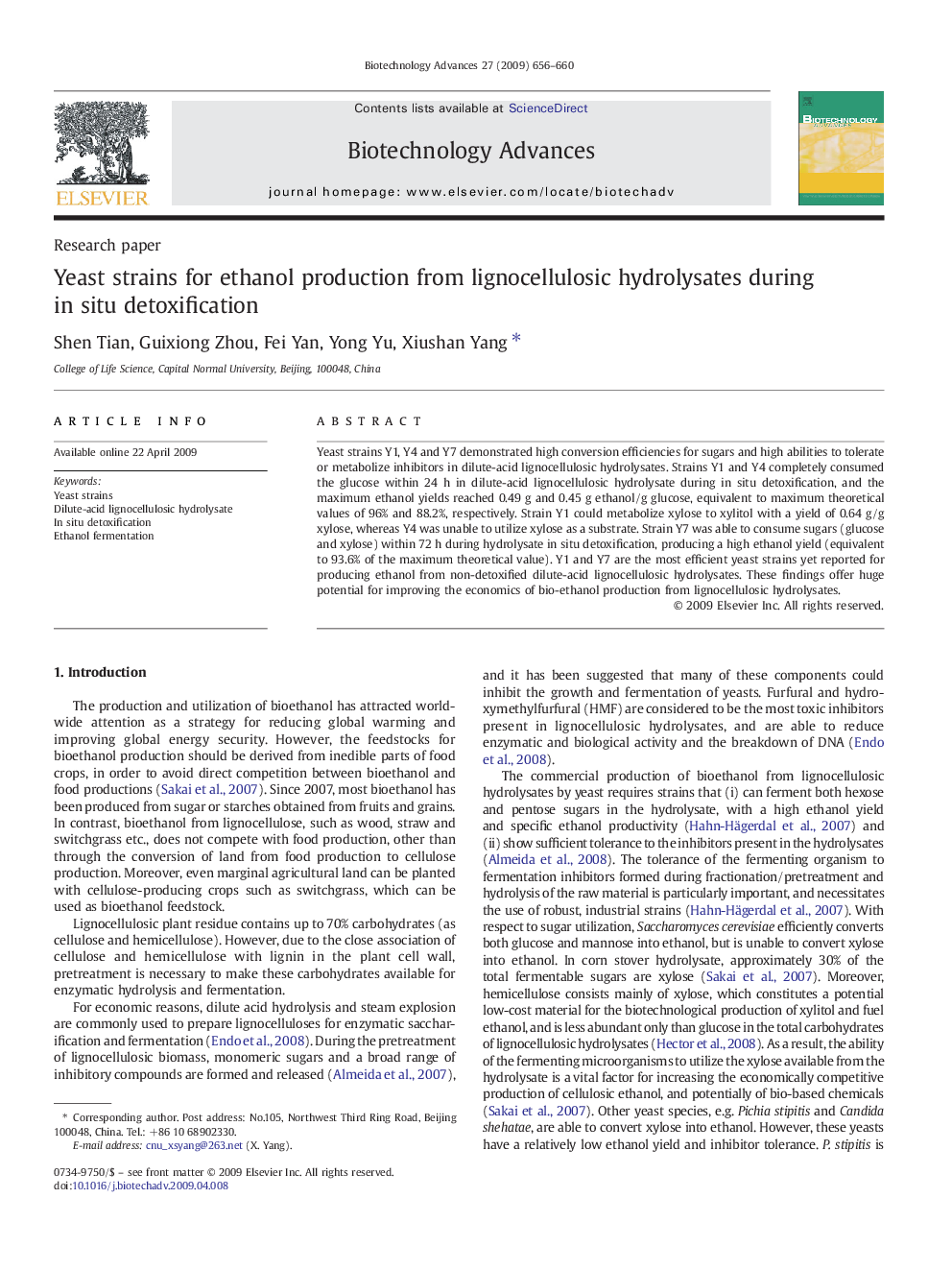| Article ID | Journal | Published Year | Pages | File Type |
|---|---|---|---|---|
| 14740 | Biotechnology Advances | 2009 | 5 Pages |
Yeast strains Y1, Y4 and Y7 demonstrated high conversion efficiencies for sugars and high abilities to tolerate or metabolize inhibitors in dilute-acid lignocellulosic hydrolysates. Strains Y1 and Y4 completely consumed the glucose within 24 h in dilute-acid lignocellulosic hydrolysate during in situ detoxification, and the maximum ethanol yields reached 0.49 g and 0.45 g ethanol/g glucose, equivalent to maximum theoretical values of 96% and 88.2%, respectively. Strain Y1 could metabolize xylose to xylitol with a yield of 0.64 g/g xylose, whereas Y4 was unable to utilize xylose as a substrate. Strain Y7 was able to consume sugars (glucose and xylose) within 72 h during hydrolysate in situ detoxification, producing a high ethanol yield (equivalent to 93.6% of the maximum theoretical value). Y1 and Y7 are the most efficient yeast strains yet reported for producing ethanol from non-detoxified dilute-acid lignocellulosic hydrolysates. These findings offer huge potential for improving the economics of bio-ethanol production from lignocellulosic hydrolysates.
